Mingjian Tang
Operationalising Responsible AI Using a Pattern-Oriented Approach: A Case Study on Chatbots in Financial Services
Jan 03, 2023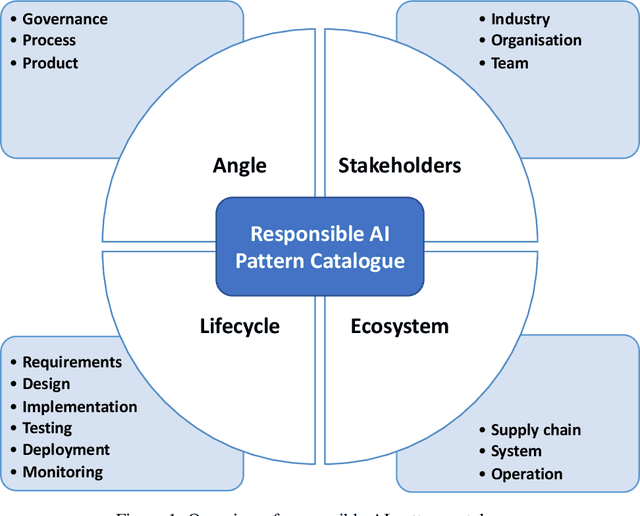


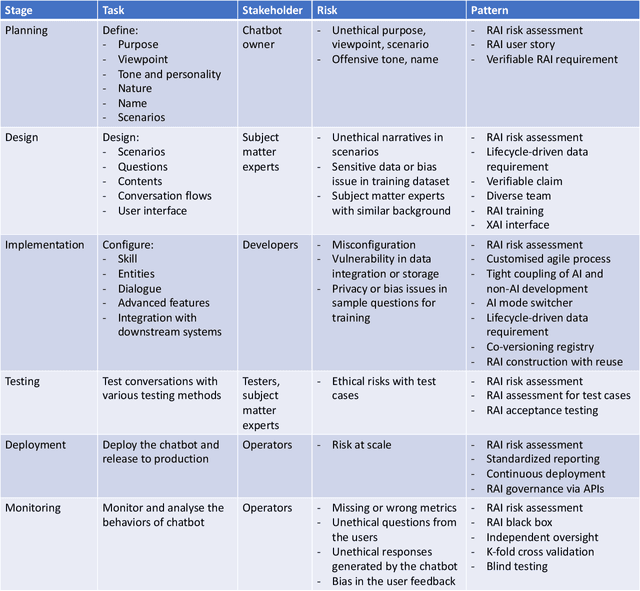
Abstract:Responsible AI is the practice of developing and using AI systems in a way that benefits the humans, society, and environment, while minimising the risk of negative consequences. Various responsible AI principles have been released recently. However, those principles are very abstract and not practical enough. Further, significant efforts have been put on algorithm-level solutions which are usually confined to a narrow set of principles (such as fairness and privacy). To bridge the gap, we adopt a pattern-oriented approach and build a responsible AI pattern catalogue for operationalising responsible AI from a system perspective. In this article, we first summarise the major challenges in operationalising responsible AI at scale and introduce how we use responsible AI pattern catalogue to address those challenges. Then, we discuss the case study we have conducted using the chatbot development use case to evaluate the usefulness of the pattern catalogue.
Robust Information Bottleneck for Task-Oriented Communication with Digital Modulation
Sep 21, 2022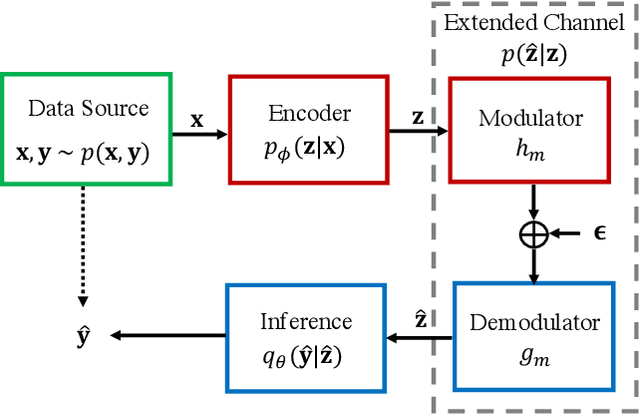
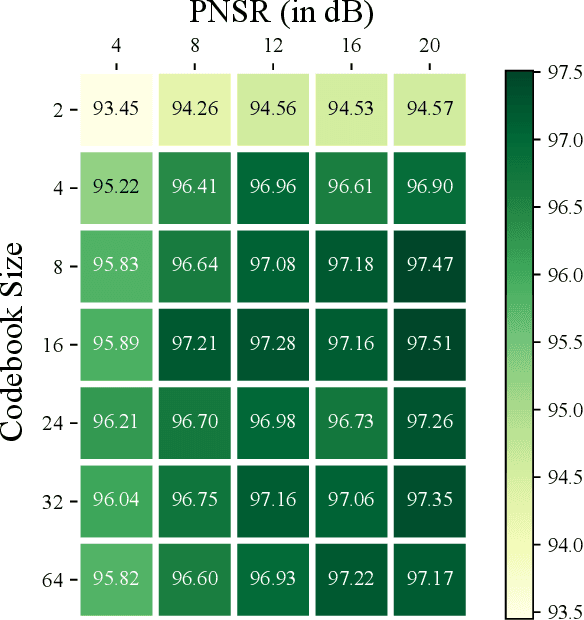

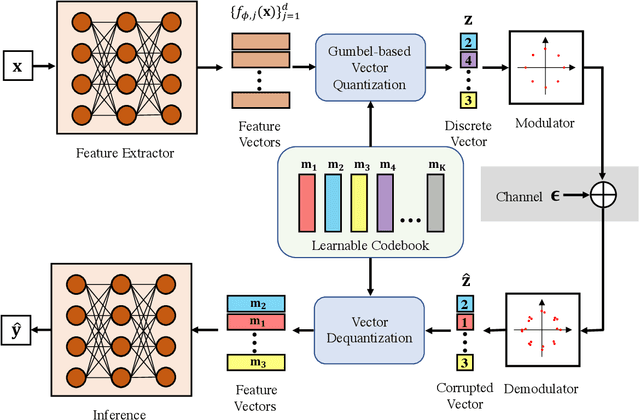
Abstract:Task-oriented communications, mostly using learning-based joint source-channel coding (JSCC), aim to design a communication-efficient edge inference system by transmitting task-relevant information to the receiver. However, only transmitting task-relevant information without introducing any redundancy may cause robustness issues in learning due to the channel variations, and the JSCC which directly maps the source data into continuous channel input symbols poses compatibility issues on existing digital communication systems. In this paper, we address these two issues by first investigating the inherent tradeoff between the informativeness of the encoded representations and the robustness to information distortion in the received representations, and then propose a task-oriented communication scheme with digital modulation, named discrete task-oriented JSCC (DT-JSCC), where the transmitter encodes the features into a discrete representation and transmits it to the receiver with the digital modulation scheme. In the DT-JSCC scheme, we develop a robust encoding framework, named robust information bottleneck (RIB), to improve the communication robustness to the channel variations, and derive a tractable variational upper bound of the RIB objective function using the variational approximation to overcome the computational intractability of mutual information. The experimental results demonstrate that the proposed DT-JSCC achieves better inference performance than the baseline methods with low communication latency, and exhibits robustness to channel variations due to the applied RIB framework.
 Add to Chrome
Add to Chrome Add to Firefox
Add to Firefox Add to Edge
Add to Edge